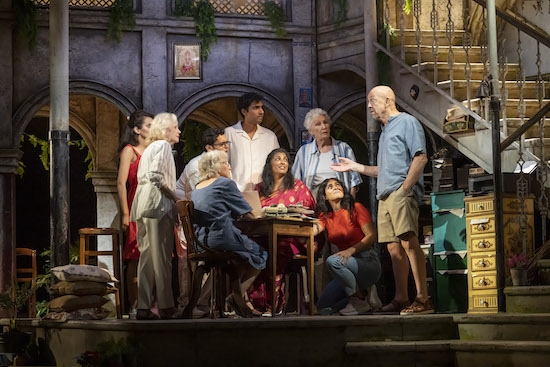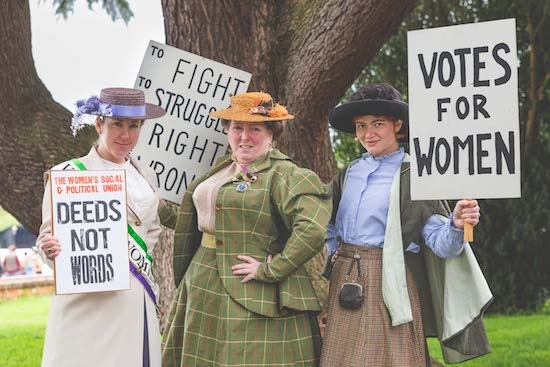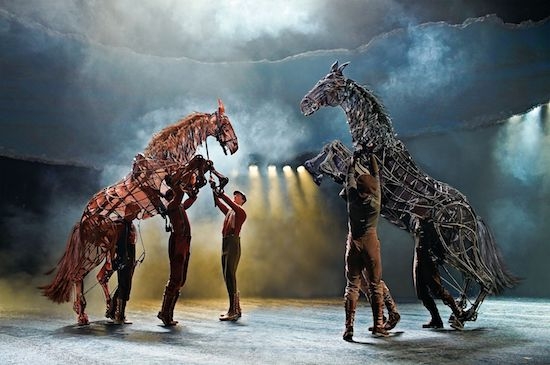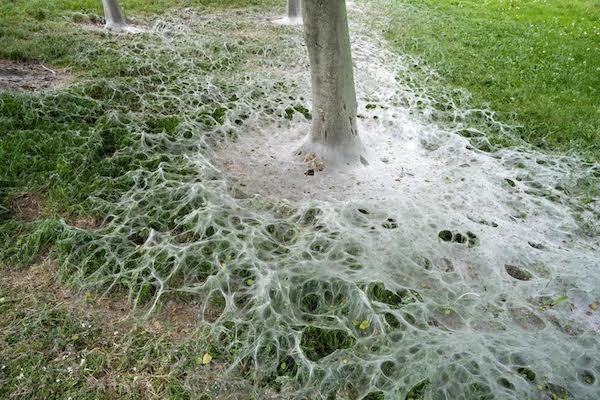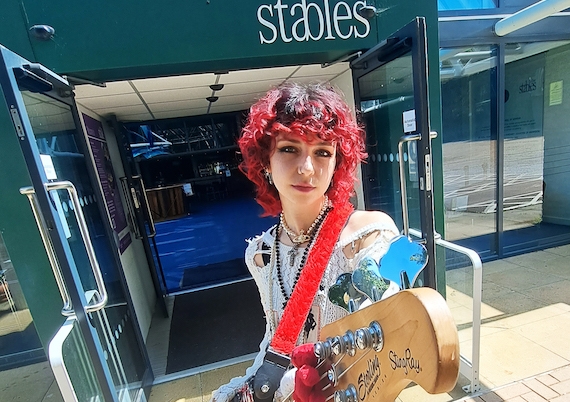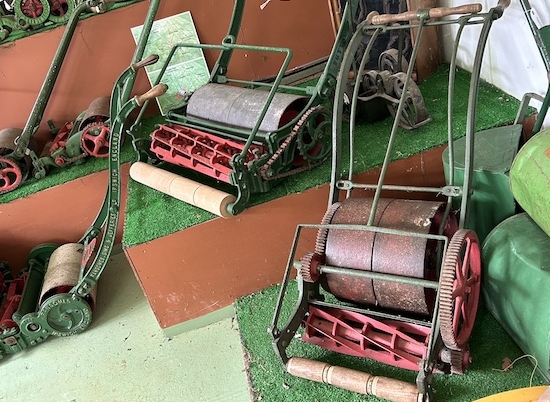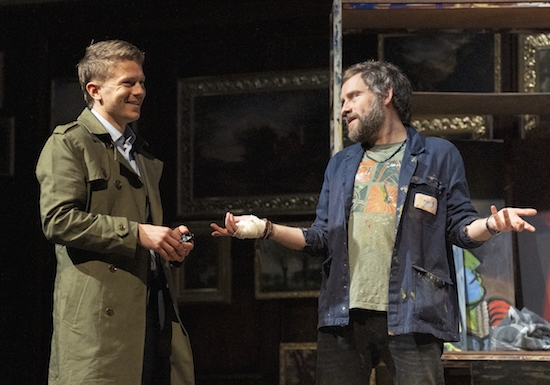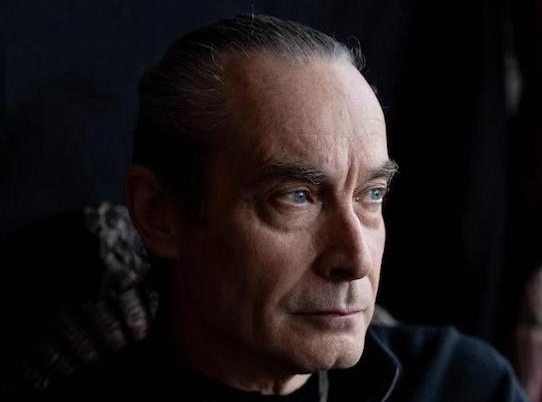New play The Best Exotic Marigold Hotel is a gentle comedy that raises a glass to humanity while reminding theatregoers young and old that age is just a number, writes Georgina Butler.
This life-affirming yarn is about timeworn travellers who swap retirement in Blighty for rejuvenation in Bangalore.
It is based on the best-selling novel These Foolish Things by Deborah Moggach, which inspired a treasured film and a travel documentary series. As the book was published in 2004 and the cinema hit was released in 2011, Moggach has updated the context for the stage version so that it includes mobiles and Zoom calls. Time marches on!
The onstage action is somewhat slow and feels stilted. Still, it is swiftly established that seven aging Brits have decided to see out their twilight years in style at the idyllic and romantic sounding "Best Exotic Marigold Hotel". Unfortunately, the accommodation is far from what was advertised.
Colin Richmond’s striking, static, set spans the width and depth of the stage to simultaneously present inside and outside spaces at the run-down colonial home turned hotel. Inside, passageways and staircases surround a central reception area. Outside, lush green plants and delicate fairy lights create an oasis of old-world Indian charm in a courtyard garden. The attention to detail is impressive and immersive, right down to the hum of traffic and echoing call to prayer audible in the distance.
Bathed in warm lighting, which mimics life-sustaining rays of golden sunshine, this dilapidated building effectively establishes the theme of the narrative. Vestiges of its glory days remain, but it is falling apart and admiration for what it once was is fading away. Will vitality be restored to both the crumbling residence and the guests now calling it home?
As an ensemble piece, The Best Exotic Marigold Hotel features the British retirees and a variety of Indian citizens. The older characters sip their drinks, tell their backstories and grudgingly embrace their current circumstances. Doing so helps them reflect on their life experiences, fall in love and seize second chances. The younger generation is also represented, as workers in a call centre that serves customers in the UK. Nonetheless, the spotlight always returns to the older personalities, who are ably played by veterans of the stage and screen.
Follow Total MK on Facebook: here and twitter here for breaking news in Milton Keynes
We meet thirty-three-year-old Sonny Kapoor (sweetly amusing Nishad More) first. He is struggling to run the family hotel following the death of his father. He persuasively presents his solution to his loving yet overbearing mother Mrs Kapoor (Rekha John-Cheriyan): market the hotel as a destination for British pensioners, because no one wants them in England. So, in troop the seven seniors. There’s man-eating Madge, anxious widow Evelyn, disgruntled former cleaner Muriel, peculiar Dorothy, narrow-minded ex-accountant Norman and husband-and-wife duo Douglas and Jean.
Rula Lenska is a sassy scene-stealer as Madge, a go-getter who has already seen off three husbands and is on the prowl for a rich maharaja. She strides across the stage with purpose and a sense of fun. The best line of the play is probably when she declares that “one of the nice things about getting old is that I don’t give a ****!”.
Hayley Mills delivers a sincere performance as Evelyn, a timid woman who blossoms when she steps outside her comfort zone.
Marlene Sidaway shows a few different sides to gloomy Muriel, as she samples the cuisine, sympathises with the hotel's staff and challenges the caste system. Richenda Carey does a lot of floating in and out of scenes as Dorothy. Andy de la Tour is bravado personified as Norman. Paul Nicholas is a hen-pecked Douglas and Eileen Battye is a smug Jean; their interactions articulately portray two people who have outgrown each other.
Youthful exuberance comes courtesy of Sonny's love interest Sahani (Shila Iqbal) and her friend Kamila (Kerena Jagpal). Tiran Aakel, Kriss Dosanjh and Anant Varman each take on multiple roles to add hustle and bustle to the hotel and call centre.
The script shines a light on cultural differences and explores age as a social construct, a biological fact and a psychological experience. Other themes include race, class, religion, death, love, loneliness and friendship. These topics are incorporated in passing comments, wry humour and walks down memory lane. It works, but aspects feel dated, flat and forced at times. Everything is resolved by the end, but it's all a bit drawn-out and predictable, whether you have seen the film or not.
An atmospheric score by composer Kuljit Bhamra conveys mood intermittently. It is a shame that music is not produced or enjoyed by the characters themselves – for entertainment or enlightenment – as it is so integral to Indian culture. The textured rhythms and spiritual nature of the orchestrations that are fleetingly used add to the contemplative tone of the play.
Celebratory dancing is deeply ingrained in Indian life and this is alluded to in the final scene. Dressed in saris and robes, with flower garlands draped around their necks, the characters slowly shake off their awkwardness and start to surrender themselves to dance. An international language that anyone, of any age, can understand.
Running time: Approximately 2 hours 30 minutes, including one interval.
Note that the production includes haze, smoke, sudden loud noises and smoking of herbal cigarettes on stage.
The Best Exotic Marigold Hotel continues at Milton Keynes Theatre until Saturday 28 January.
Georgina Butler is an editor, a dance writer and a ballet teacher. Click here and follow her on Twitter @GeorginaLButler and Instagram @glbdancewriter


